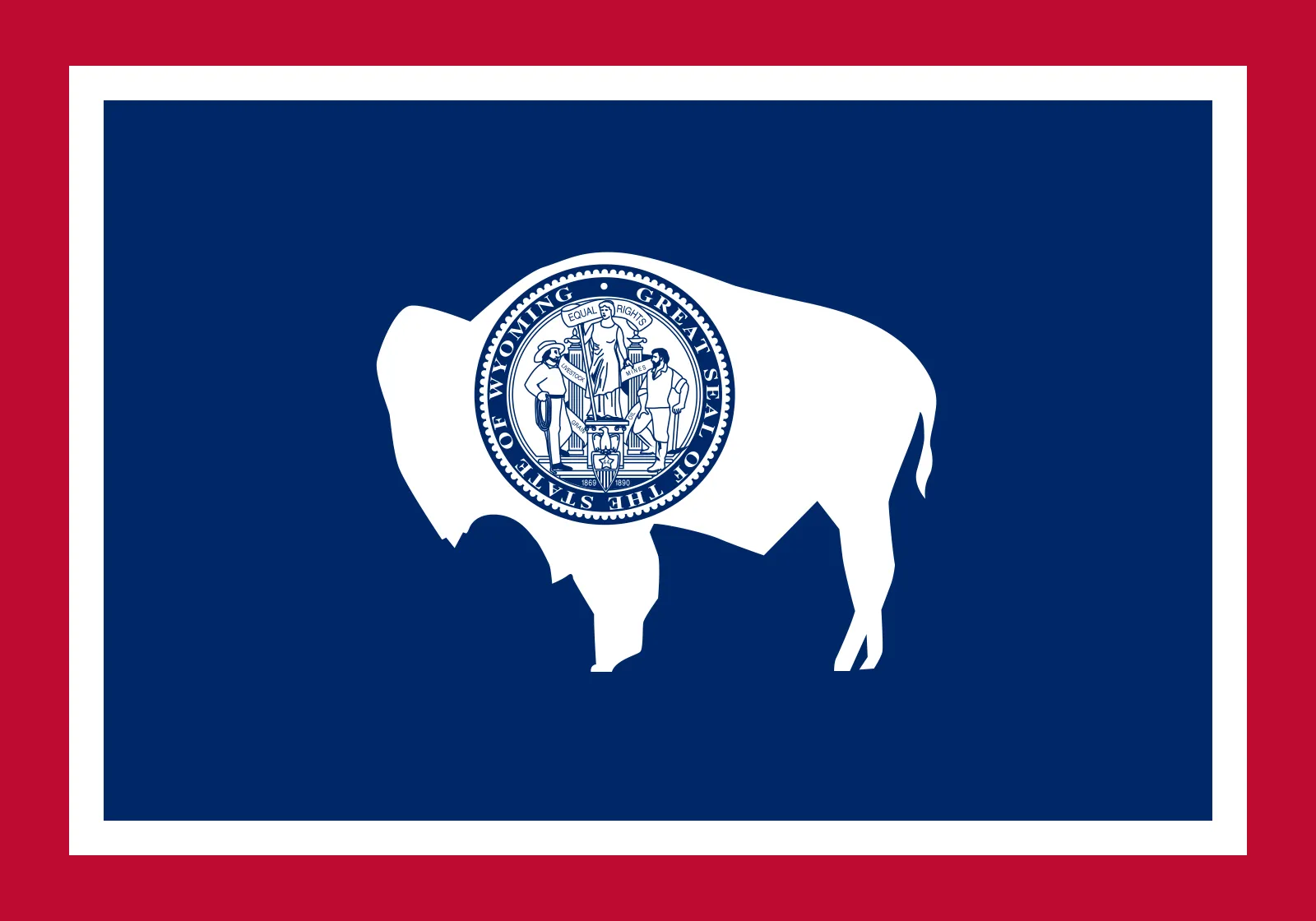When it comes to renting a property, understanding the laws and regulations surrounding security deposits is crucial. Security deposits serve as a form of protection for both landlords and tenants, ensuring financial security and responsibility during a lease agreement. In Wyoming, specific laws govern security deposits to safeguard the rights of both parties involved.
An overview of the security deposit laws in Wyoming provides fundamental knowledge about their purpose and significance. It is important to comprehend what a security deposit entails and why it is essential to have laws that regulate it.
A security deposit is a sum of money paid by the tenant to the landlord at the beginning of a lease agreement. This deposit acts as a form of insurance for the landlord, protecting against any potential damages or unpaid rent by the tenant. At the end of the lease, the deposit is typically returned, minus any deductions for damages or outstanding rent.
Security deposit laws play a crucial role in maintaining a fair and transparent rental process. They establish guidelines and regulations that both landlords and tenants must adhere to, aiming to prevent any disagreements or conflicts regarding the handling of the security deposit.
In Wyoming, the security deposit law has specific provisions that outline the rights and responsibilities of both landlords and tenants. It is important to understand these provisions to ensure compliance and avoid any legal complications or misunderstandings.
It is crucial to stay updated on any changes or updates in the Wyoming security deposit law. In 2024, there have been recent changes to the law that both landlords and tenants should be aware of, as it may impact their rights and obligations.
By understanding the Wyoming security deposit law and staying informed about the recent updates, you can protect yourself as a tenant or landlord. Knowing your rights and responsibilities regarding security deposits is essential for a smooth and hassle-free renting experience. It is wise to be aware of the legal recourse available in case of any disputes related to security deposits.
Key Takeaways:
- Increased tenant protection: The updated Wyoming Security Deposit Law for 2024 strengthens the rights of tenants by specifying key provisions and obligations for handling security deposits, ensuring greater fairness and accountability.
- Clear guidelines for deductions: The revised law outlines permissible deductions from a security deposit, providing landlords with clarity on what expenses can be deducted and helping tenants understand their rights and responsibilities.
- Streamlined dispute resolution: In case of a security deposit dispute, the new law outlines the steps to resolve conflicts, offering both landlords and tenants clear legal options to seek resolution and protect their interests.

Overview of Security Deposit Laws in Wyoming
In Wyoming, it is important to have an understanding of the overview of security deposit laws. These laws govern the amount a landlord can charge, the timeframe for returning the deposit, and the reasons for withholding part or all of the deposit. Renting a property in Wyoming requires knowledge of the security deposit laws. In this state, the security deposit is limited to one month’s rent, ensuring fairness for tenants. Landlords must abide by these laws and return the deposit within 30 days after the lease termination. Deductions from the deposit are permissible for unpaid rent, damages beyond normal wear and tear, and cleaning fees. Familiarity with these laws benefits both tenants and landlords, providing protection and fairness to all parties involved.
What is a Security Deposit?
A security deposit is a sum of money that a tenant pays to a landlord before moving into a rental property. What is a Security Deposit? It serves as financial protection for the landlord in case of damages or unpaid rent. The deposit is usually refundable at the end of the lease term, provided the tenant has fulfilled all obligations. The amount of the security deposit is typically equal to one to two months’ rent. It is important for both tenants and landlords to understand the rights and responsibilities associated with security deposits to avoid disputes. In 2024, changes to the Wyoming security deposit law will provide added protection for tenants.
Now, let’s delve into the true history of security deposits.
Security deposits have been used for centuries as a safeguard in various transactions. The concept can be traced back to ancient Greece, where tenants would provide a deposit, or arrhabon, to landlords as collateral. This ensured that the landlords would not suffer any financial loss due to damages or non-payment. Over time, the practice of security deposits spread to different parts of the world and became a standard practice in landlord-tenant relationships. Today, security deposits continue to play a crucial role in protecting both parties involved in rental agreements.
Importance of Security Deposit Laws
The importance of security deposit laws cannot be overstated, as they play a crucial role in protecting the rights of both landlords and tenants. These laws ensure that landlords can financially safeguard their property against potential damages, unpaid rent, or other breaches of the lease agreement, thus maintaining a fair and transparent relationship. Equally important, security deposit laws provide tenants with the guarantee that their deposit will be handled appropriately and returned in a timely manner at the end of the tenancy. By doing so, these laws prevent disputes and provide a legal framework to resolve any conflicts that may arise.
Understanding the Wyoming Security Deposit Law
Did you know that the Wyoming Security Deposit Law has undergone some significant changes for 2024? In this section, we’ll dive deep into understanding this law and its key provisions. We’ll also shed light on the latest updates and changes implemented for the year 2024. Get ready to uncover crucial information that will help both tenants and landlords navigate the Wyoming Security Deposit Law with clarity and confidence.
Key Provisions of the Wyoming Security Deposit Law
The Key Provisions of the Wyoming Security Deposit Law are clearly outlined in the following manner:
- Maximum Amount: In accordance with the law, landlords are only allowed to collect a security deposit that is equivalent to one month’s rent.
- Deposit Return: It is mandatory for landlords to return the security deposit within a period of thirty (30) days after the tenant moves out.
- Itemized Deductions: In case landlords intend to deduct any amount from the security deposit, they are obligated to provide an itemized statement that explains the deductions.
- Right to Inspection: Tenants enjoy the right to request a pre-move-out inspection to identify any damages that may affect the return of their deposit.
The Wyoming Security Deposit Law was enacted in response to growing concerns regarding unfair practices. Its primary objective is to safeguard the rights and interests of both landlords and tenants. By providing clear guidelines for the collection, handling, and return of security deposits, these key provisions aim to ensure transparency and fairness throughout the rental process.
Changes in the Wyoming Security Deposit Law for 2024
Changes in the Wyoming Security Deposit Law for 2024 include several key updates to protect tenants and provide clarity for landlords.
- Increased Security Deposit Limit: The new law stipulates a maximum security deposit limit of one month’s rent.
- Timeline for Return: Landlords now have 30 days to return the security deposit to tenants after lease termination.
- Itemized Deductions: Landlords must provide a detailed itemized deduction statement within 14 days of the tenant’s move-out date.
- Inspection Requirements: Landlords are required to conduct a move-in and move-out inspection to document the condition of the rental unit.
These changes aim to promote fairness and transparency in the handling of security deposits, giving tenants more rights and providing clear guidelines for landlords. Ultimately, these updates aim to minimize disputes and ensure a smoother rental process for both parties involved.
Rights and Responsibilities of Landlords
As we dig into the rights and responsibilities of landlords, we’ll uncover the obligations they have when it comes to handling security deposits and the permissible deductions that can be made. From ensuring financial security for both parties to maintaining transparency, the regulations surrounding security deposits play a crucial role in Wyoming’s rental landscape. So, let’s navigate through the details, backed by relevant facts and figures, to understand the key aspects of landlord obligations and the permissible deductions they can make.
Landlord’s Obligations for Handling Security Deposits
When it comes to handling security deposits, landlords have certain obligations that they must fulfill. Landlord’s obligations for handling security deposits can be summarized by the following steps:
- Document the condition of the rental property before the tenant moves in.
- Provide tenants with a written receipt confirming the amount of the security deposit that has been paid.
- Store the security deposit in a separate account and do not use it for personal expenses.
- Inform tenants of any allowable deductions that may be made from the security deposit.
- Return the security deposit within the required timeframe, typically within a certain number of days after the tenant moves out.
- Provide tenants with an itemized list of any deductions made from the security deposit and include receipts or invoices for any repairs or cleaning.
- Follow state laws regarding interest payments on security deposits, if applicable.
- Keep accurate records of all transactions related to the security deposit.
By following these obligations, landlords can ensure that they are properly handling security deposits and fulfilling their responsibilities.
Permissible Deductions from a Security Deposit
Landlords in Wyoming are allowed to make permissible deductions from a tenant’s security deposit under certain circumstances. Here are some examples of permissible deductions from a security deposit:
- Unpaid rent or utilities
- Damages to the rental property beyond normal wear and tear
- Cleaning costs to restore the property to its original condition
- Repair costs for any damages caused by the tenant
- Replacement costs for lost or damaged keys or other access devices
It’s important for landlords to provide itemized deductions and receipts to the tenant within a specific timeframe as required by the Wyoming security deposit laws.
Rights and Responsibilities of Tenants
As tenants, it’s crucial to understand our rights and responsibilities when it comes to the security deposit. In this section, we’ll dive into the two sub-sections that will shed light on this matter. First, we’ll uncover the tenant’s rights regarding the security deposit, ensuring you know what you’re entitled to. We’ll provide some valuable tips for protecting your security deposit, giving you the knowledge to safeguard your hard-earned money. So, let’s dive in and empower ourselves with the knowledge we need for a smooth and fair rental experience!
Tenant’s Rights Regarding the Security Deposit
Tenant’s Rights Regarding the Security Deposit
Tenants have certain rights when it comes to their security deposit. It is important for tenants to be aware of these rights to protect themselves and ensure they are treated fairly. Some key rights include:
- The right to receive a written receipt for the security deposit.
- The right to have the security deposit held in a separate account.
- The right to know the conditions under which deductions can be made from the deposit.
- The right to receive the deposit back within a specified time frame after the lease ends.
- The right to dispute any deductions made from the deposit.
Tenants should familiarize themselves with the specific laws in their state to understand their rights and responsibilities regarding security deposits.
Tips for Protecting Your Security Deposit
Here are some tips for protecting your security deposit:
- Make sure to review the lease agreement thoroughly to understand all the terms and conditions related to the security deposit.
- Prior to moving in, document the condition of the rental unit with photos or videos. This will provide evidence in case any disputes arise later.
- Report any existing damages or issues to the landlord or property manager immediately to avoid being held responsible for them.
- To have a paper trail, it is recommended to communicate in writing for all correspondence regarding the security deposit.
- Follow the move-out procedures specified in the lease agreement, which includes cleaning and making any necessary repairs to meet the requirements for the return of the deposit.
- Request a final walk-through with the landlord to address any concerns and ensure a clear understanding of the condition of the rental unit.
- Keep copies of all communication and receipts related to repairs or maintenance carried out during your tenancy.
- Be aware of the deadline for the landlord to return the deposit and follow up if needed.
- If there are any disputes or issues, it may be beneficial to seek legal advice or mediation to resolve the matter.
Legal Recourse for Security Deposit Disputes
When it comes to security deposit disputes, knowing your legal recourse is essential. In this section, we’ll explore the steps you can take to resolve such disputes, as well as the legal options available to both tenants and landlords. Whether you’re a tenant seeking a fair return of your security deposit or a landlord aiming to navigate the legal landscape, understanding the process and your rights is crucial. Let’s dive into the ins and outs of resolving security deposit disputes and finding a legal solution.
Steps to Resolve Security Deposit Disputes
Resolving security deposit disputes involves following a series of steps to ensure a fair and efficient resolution. Here are the
- Review the lease agreement and the specific terms regarding the security deposit.
- Document any damages or issues in the rental property before moving in and after moving out.
- Communicate with the landlord in writing, explaining the dispute and requesting a resolution.
- If the landlord does not respond or refuses to resolve the issue, consider mediation or arbitration.
- If necessary, file a small claims lawsuit to pursue legal action.
Fact: In the US, security deposit disputes are one of the most common conflicts between landlords and tenants, accounting for a significant portion of small claims court cases.
Legal Options for Tenant and Landlord in Case of a Dispute
When a dispute arises between a tenant and landlord regarding a security deposit, there are legal options available to both parties. Tenants have the legal option to start by communicating their concerns to the landlord and attempting to resolve the issue amicably. If this does not work, tenants can seek legal advice and consider filing a complaint with the relevant housing authority or small claims court, which are additional legal options for tenants in case of a dispute.
Landlords, on the other hand, should familiarize themselves with the specific laws in their jurisdiction and understand their rights and obligations. It is important for landlords to be aware of the legal options they have in case of a dispute with their tenants. If a disagreement cannot be resolved through negotiation, landlords may need to take legal action to protect their interests, which is another legal option available to them.
A true story illustrates how a tenant and landlord hired mediators to successfully settle their dispute and avoid a lengthy court battle. This is an example of how utilizing legal options for tenant and landlord in case of a dispute can lead to a favorable outcome.
Some Facts About Wyoming Security Deposit Laws: What’s new in 2024
- ✅ Wyoming landlords can charge any amount as a security deposit for rental properties. (Source: Our Team)
- ✅ There is no requirement for landlords to deposit the security deposit in a separate account. (Source: Our Team)
- ✅ Landlords have 30 days to return the balance of the security deposit after the termination of the rental agreement. (Source: Our Team)
- ✅ Tenants have 30 days to notify the landlord of their payment and notice address after the termination of the rental agreement. (Source: Our Team)
- ✅ If the damages caused by the tenant exceed the security deposit, the landlord can hold the tenant responsible for the additional amount and charge interest at a rate of 10% per annum. (Source: Our Team)
Frequently Asked Questions
What is the maximum security deposit amount that landlords can charge for rental properties in Wyoming?
In Wyoming, there is no limit on the amount of security deposit that landlords can charge for rental properties. Typically, landlords charge one month’s rent as the security deposit.
What is the deadline for returning the security deposit in Wyoming?
After the termination of the rental agreement, landlords in Wyoming have 30 days to deliver or mail the balance of the deposit to the tenant, along with an itemized list of deductions and reasons for those deductions. If the tenant has provided a new mailing address, the time frame is reduced to 15 days after receipt of the new address, but the later of the 30 or 15 days applies.
Can landlords deduct damages beyond normal wear and tear from the security deposit in Wyoming?
According to Wyoming law (Wyo. Stat. § 1-21-1208), landlords can use the security deposit for damages beyond normal wear and tear, unpaid rent, cleaning costs, and other costs specified in the rental agreement.
What happens if there is damage to the rental property that exceeds the security deposit in Wyoming?
If the damages caused by the tenant exceed the security deposit in Wyoming, Wyo. Stat. § 1-21-1211(b) allows the landlord to hold the tenant responsible for the additional amount and charge interest at a rate of 10% per annum.
Is there a specific rule for handling the security deposit in Wyoming?
Wyoming does not require the security deposit to be deposited in a separate account and does not mandate the payment of interest on the deposit. However, landlords are responsible for ensuring that issues like mold and lack of heat do not exist before tenants move in.
Are there any legislative updates regarding security deposit laws in Wyoming?
As of 2024, there are no specific legislative updates regarding security deposit laws in Wyoming. It is important for both landlords and tenants to understand and follow the existing laws to avoid legal complications.
Dave is a seasoned real estate investor with over 12 years of experience in the industry. Specializing in single-family residential real estate, David’s strategic approach combines market analysis, financial acumen, and a deep understanding of urban development trends to maximize investment returns.










